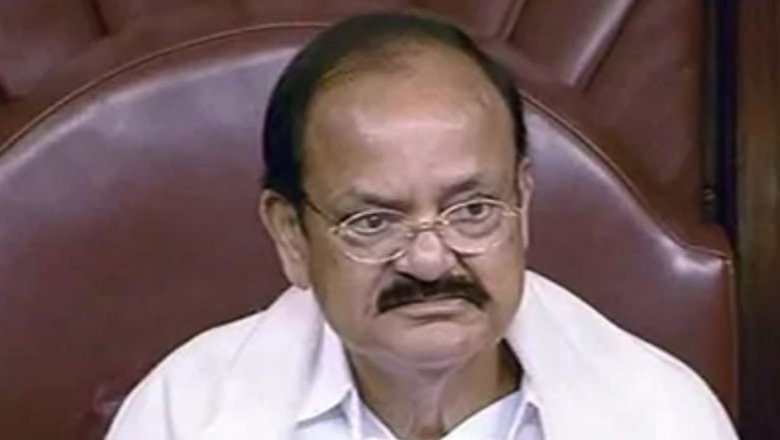
views
Former Vice President M Venkaiah Naidu on Friday explained why the absence of a Uniform Civil Code (UCC) has “perpetuated inequalities” and has “hindered nation’s progress towards social harmony, economic and gender justice”.
In an opinion piece in The Hindu, Naidu wrote that Babasaheb Ambedkar, the chief architect of the Indian Constitution, had made a strong case in the Constituent Assembly for framing a UCC. He stressed the importance of a UCC in ensuring gender equality and eradicating prevailing social evils.
“India, being a diverse nation, is home to many religions, each with its distinct personal laws governing marriage, divorce, adoption, inheritance and succession. It would be accurate to say that the absence of a Uniform Civil Code (UCC) has only served to perpetuate inequalities and inconsistencies in our land of rich diversity. In fact, this has been a hindrance in the nation’s progress towards social harmony, economic and gender justice,” he explained.
Referring to history, Naidu wrote, “The debate on the UCC goes back to the Constituent Assembly debates. In fact, one could assert that the legality of UCC is rooted in the Constitution of India, Constituent Assembly debates and also Supreme Court of India judgments. Constituent Assembly debates shed light on the need and the objective behind promoting a common civil code.”
The former V-P put forward his opinion on the issue a week after Prime Minister Narendra Modi “called for the enactment of a UCC, pointing out the anomaly of having varying laws for different categories of citizens”.
Earlier too, in a 2016 report of The Hindu, Naidu had written that a set of laws to govern personal matters of all citizens irrespective of religion is the cornerstone of true secularism. “It would help end gender discrimination on religious grounds and strengthen the secular fabric,” he said.
At the time, his opinion piece was published after the “progressive decisions” of the Shani Shingnapur and Trimbakeshwar temple trusts to allow entry of women in the wake of a series of protests. He said that it constituted a welcome development in what has been a long march towards gender equality.
Naidu then went on cite the example of Goa, which is the only state in India that has uniform civil code regardless of religion, gender and caste.
“It is a matter of concern that close to seven decades after Independence, women continue to battle discrimination in matters of religion even as they march shoulder-to-shoulder with men in various fields. Perhaps, the time has come for us to take a close, hard look at the Goa Family Law and see if it could be emulated in the rest of the country,” he wrote.
“The Portuguese Civil Code of 1867 was continued in Goa after its liberation, and it should be the model for other States. The progressive law provides for equal division of income and property regardless of gender between husband and wife and also between children. It is also applicable in the Union Territories of Dadra and Nagar Haveli and Daman and Diu,” Naidu added.
The post Ex-VP says UCC legality rooted in Constitution first appeared on IPA Newspack.
https://thearabianpost.com/ex-vp-says-ucc-legality-rooted-in-constitution/#utm_source=rss&utm_medium=rss&utm_campaign=ex-vp-says-ucc-legality-rooted-in-constitution

























Comments
0 comment